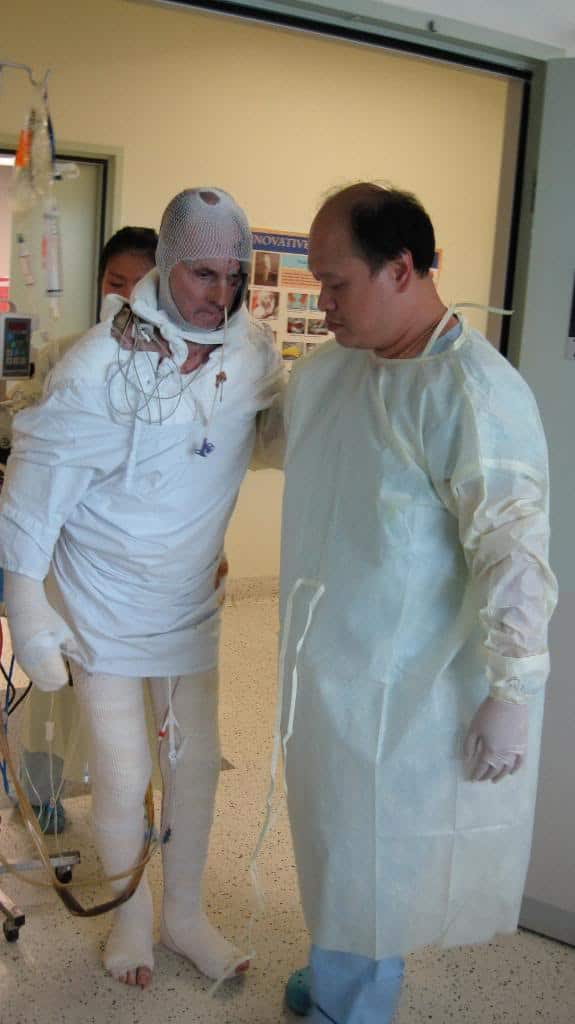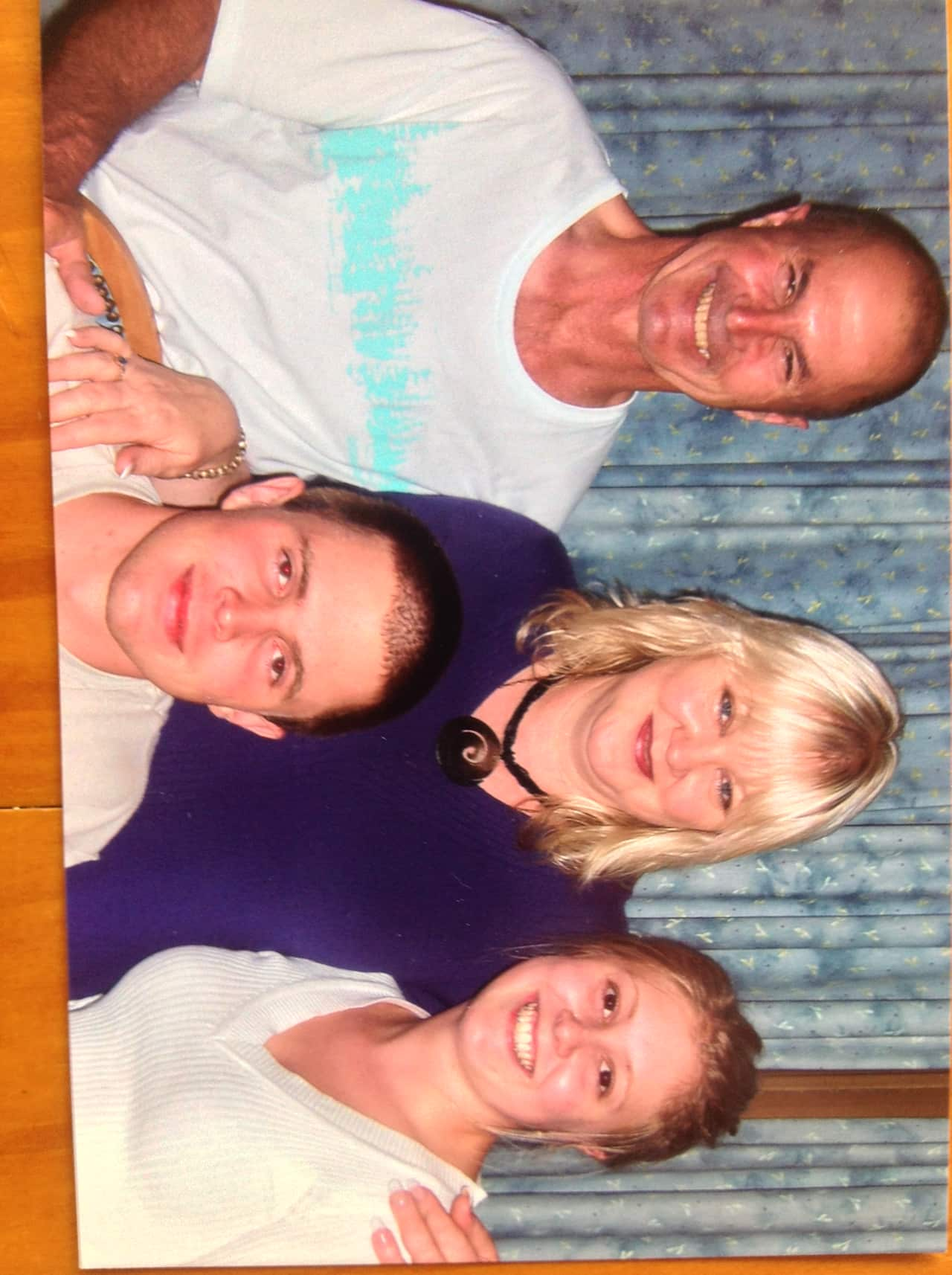- Watch SBS Insight on SBS ONE Tonight at 8.30pm (repeat Wednesday 1pm)
- Join the conversation on Twitter using #insightsbs
- How does the human body react during a crisis?
- Comment: I spent 75 hours adrift in the ocean and survived
It was a hot windy day and as I drove down the highway, I could see a massive plume of smoke around our area.
I think what gave me the bravado was putting a reasonable fire out on my neighbour’s property a week earlier. I thought, "This is easy, I can do this," But this one was bigger and more ferocious.
Not even for one moment was I thinking anything was going to hurt me.
I raced down, got my tractor – it’s got a big 600L water tank on the back, with a good spray unit.
I approached it from the wrong angle and the wind spun around, the fire turned and came towards us and we were engulfed in huge plumes of smoke. We went to fight it but in the end it fought us.
I jumped off the tractor which was a mistake and I tried to run away, but I couldn’t see so I ran into a barbed wire fence and then started to climb a big pine tree in an attempt to get away. I got stuck and I got horribly burnt.
When I think about it now, I probably should have stayed close to the house. But you go into "this can’t happen to me" mode. I thought I’d had enough training to deal with that kind of thing.
I could hear my son saying "run through the fire" but I didn’t have the fortitude to do that. I just couldn’t bring myself to run through flames - the instinct was to get away and run in front. Had I turned around behind me to run through, I would have had burns but not the kind that crippled me like this.
Once you know you’re badly burnt you forget the fire and you just try to survive. I jumped into a trough because I knew that was a way to cool your body down but I also knew about infections. A sheep trough isn’t exactly hospital-grade cleanliness, but when I was in survival mode I just went from trough to trough.

You don’t think deep, meaningful things in a situation like that. You just want to get away - you think you’re going to die.
The whole fire thing happened in less than 20 minutes but I was in the hospital for months and months.
Once they work out you’re going to survive, the next thing you need to work out is how to make your joints work.
There was an initial five months in hospital and another 2.5 months in rehab - and then the hard work starts.
You’re just staring at the ceiling and having to learn how to walk. I couldn’t feed and go to the toilet by myself for two years.
I can’t perspire anymore so I can’t control my body temperature. My arms don’t bend so I needed to learn how to do that over years.
A lot of people like me end up with kidney failure, cardio myopathy; they’re all by-products of being badly burnt. Your immune system takes up to five years to get back into gear.

I’ve got a super supportive wife and she’s made a big difference in helping me survive the ordeal. A lot of spouses can’t handle it and that shocked me. They can’t deal with the whole problem. If you’ve got someone strong like Bronnie it makes all the difference.
She was telling me "you’ve got a lot to live for if you get your head around it".
A lot of wives and husbands wouldn’t want to understand that but she took it head on. She still showers me every day.
"If I had a choice to live the way I’m living now or die tomorrow, I’d say live."
Whenever I’d go into depressing moods, Bronnie would pull me out of them. She’d even get angry at me sometimes because to dissolve down to this heap of sympathy and mass of sadness gets you nowhere.
But I think you have to be a certain type of person. I’m a pretty pig-headed, stubborn human being and that might have helped.
Naturally, I’m pleased to be alive and not incapacitated by all the problems I’ve got. If I had a choice to live the way I’m living now or die tomorrow, I’d say live.
Bernie is a guest on tonight’s episode of Insight at 8.30pm on SBS ONE. In the conclusion of our special two-part series, Insight hears about what people did to get through extraordinarily tough times, and how they 'survived survival'.
Support is available for anyone who may be distressed by phoning Lifeline 13 11 14; Mensline 1300 789 978; Kids Helpline 1800 551 800.
Insight is Australia's leading forum for debate and powerful first-person stories offering a unique perspective on the way we live. Read more about Insight
Have a story or comment? Contact Us


